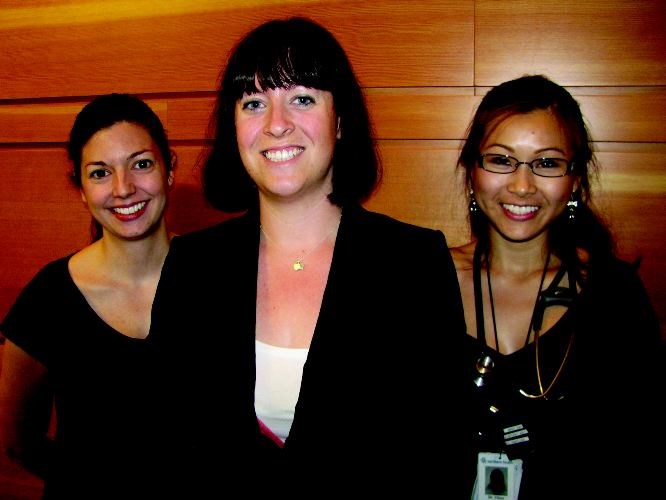A provincial representative of B.C.'s resident doctors was in Prince George, Aug. 30, to take the temperature of this town's members.
Resident doctors are in a unique in-between stage of professional development - qualified doctors, but required to still learn as apprentices of veteran doctors (attending physicians), but also required to teach the craft to the next generation of medical students. They are under this classification for two to seven years depending on the specialty.
Prince George has a large contingent of residents due to the Northern Medical Program and the complimentary activities of Northern Health. At University Hospital of Northern B.C. there are 11 residents in first year (R1) and eight in second year (R2) with the three remainders assigned to rural locations in the north.
Three others are specifically assigned to the psychiatric department. Also, there is a high number of rotating residents from other major centres, each on two-month assignments to specialty areas of medicine.
If your specialty of choice is family medicine you are assigned a rotational sampling of sub-categories like paediatrics, obstetrics, rural medicine, etc. to gather a generalist frontline medical understanding.
Susie Butow is an R2 who just got back from two months in Smithers.
"You get a sense of independence working there," she said. "I was the only learner there and the doctors were very enthusiastic about teaching me. Because there are no CT scanners there, for example, you have to call on all your skills and experiences, and collaborate with your attending physician to make careful assessments for patients because you don't have technology at your fingertips."
Butow is a longtime Prince George resident who enjoyed the Smithers experience and wants to keep her medical endeavours in the north. "Where you do your residency I think has a big effect on where you end up practicing," she said.
Of Butow's 22 fellow graduates of the Northern Medical Program, only seven got a family medicine residency in northern B.C.
Annie Chou, an Internal Medicine R3 from Vancouver, stationed in Prince George for a couple of months, said this was largely unavoidable. Most students are interested in narrower specialties.
"If you are interested in cardiology, yes there are doctors and patients here but you don't get the volume or the acuity. You have to be in a really big city to get the necessary range of experiences," she explained.
Chou and Butow agreed that they were never forced to make patient decisions beyond their expertise and never forced into teaching situations over their heads. The succession system was strongly operated in B.C.
However, it is not uncommon for resident doctors to work 24-hour shifts with only four hours of sleep (usually at the hospital), or put in 80 hours of work per week but only be paid for 36 of them, or other pitfalls of the profession. "Keener slave labour" was a term that rang true across the industry, said the Professional Association of Residents labour relations co-ordinator Nikki Brown.
"When you look at B.C. compared to places like Ontario and Quebec, there are a lot of improvements that could be made for resident doctors," said Brown, in Prince George for a whirlwind set of meetings.
"We want to squash this idea that residents are glorified medical students," Brown said. "Yes, they are still learning, but they are also teaching and doing a lot of the medical attention for patients in this hospital."
The resident doctors of B.C. are in negotiations for a new province-wide contract. Their current one expired in 2010.

.png;w=120;h=80;mode=crop)

